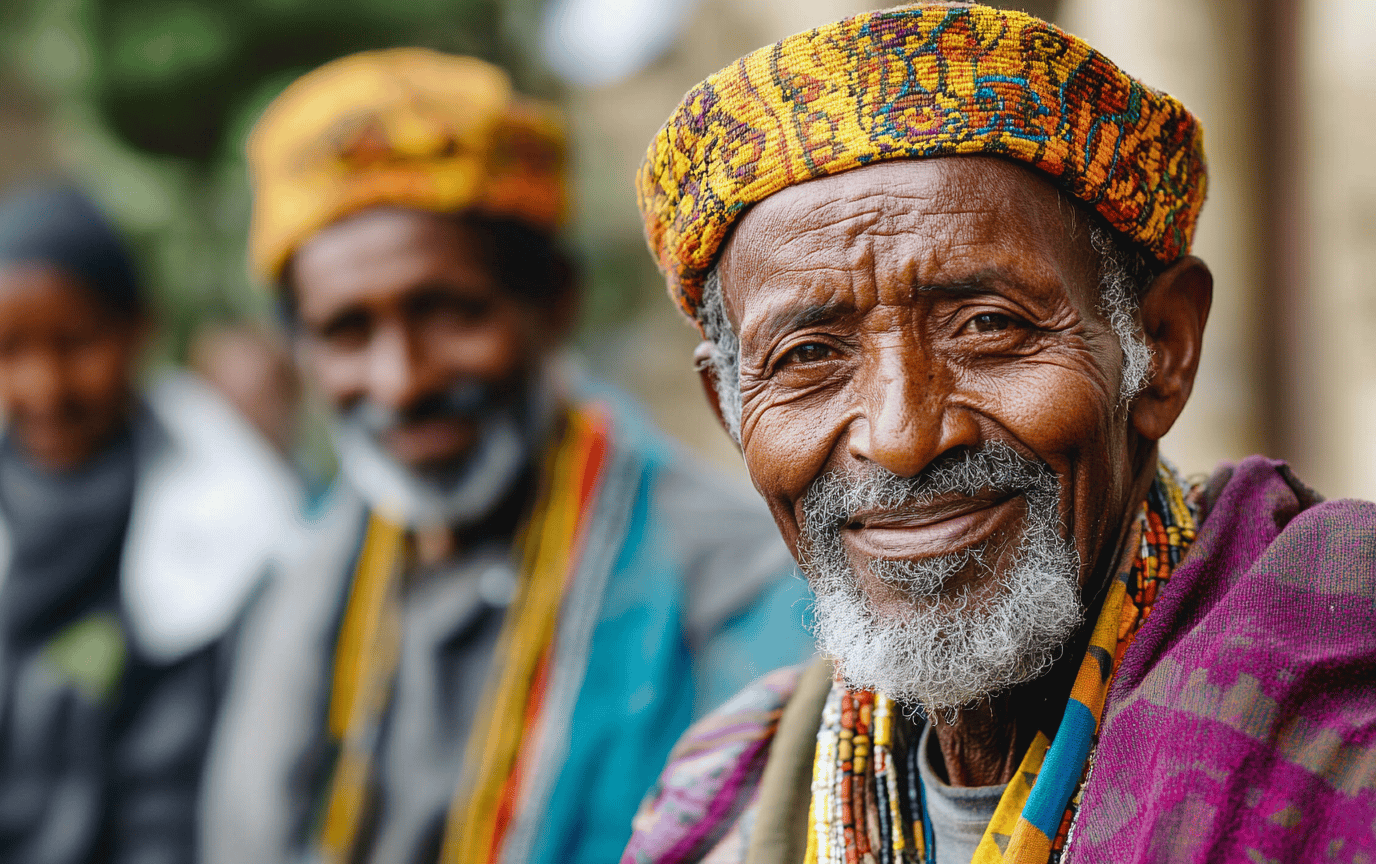The Role of Religion in Ethiopian Society
Ethiopia, where time seems to echo divine melodies and ancient practices whisper through the mountains and valleys, cradles a rich tapestry of cultures and traditions. Here, under the eye of the heavens, religion is not merely a set of beliefs but a living, breathing entity that shapes the lives of its people—every thought, every action, and every celebration reverberates with its influence. As travelers seeking to understand this beautiful mosaic, you will find that Ethiopian society is intricately woven with the threads of spirituality, community, and identity.
Historical Context
To explore the Ethiopian spiritual landscape, we must tread back through time, where the roots of faith burrow deep into the fabric of the nation. Ethiopia is heralded as one of the first nations to embrace Christianity, with its origins tracing back to the 4th century. The Ethiopian Orthodox Tewahedo Church, one of the oldest Christian communities in the world, stands as a stalwart symbol of resilience and tradition. Its uniqueness lies in a harmonious blend of Christian and Jewish customs, a characteristic that sets it apart from the Western Christian denominations.
Imagine, for a moment, the sun-drenched highlands where the first Christian missionaries tread, spreading the message of love and faith. Picture the ancient churches carved from solid rock, standing firm against the ravages of time, bearing witness to a faith that thrives amidst trials. These sacred spaces are not merely buildings but sacred vessels of history, echoing with prayers and hymns that unite generations.
Yet, the Ethiopian spiritual narrative does not end with Christianity. Islam, too, has its roots intertwined with this land, having made its way into Ethiopian hearts during the 7th century when Muslim refugees sought refuge in the embrace of this hospitable nation. This profound connection, nurtured over centuries, has fostered a deep respect for Islam within Ethiopian society—marking Ethiopia as a rare jewel where multiple faiths coexist in a delicate balance.
Current Religious Landscape
Fast forward to today, and the scenario is vibrant, dynamic. Ethiopia’s religious demographics reveal a profound complexity; a ballet of beliefs where approximately 43.5% of the population identifies as Ethiopian Orthodox Christian, and 18.6% are Protestant followers, while about 33.9% adhere to Islam. Traditional animism, though less pronounced in modern contexts, still lingers in rural communities, adding layers of nuance to the Ethiopian spiritual landscape.
As we traverse the bustling markets and quiet rural enclaves, conversations abound about faith. "Do you follow the fasting rules?" a grandmother might ask, her eyes sparkling with a shared sense of tradition. “Only on the holy days, my dear,” her granddaughter might reply, oscillating between devotion and youthful indulgence, reflecting a tension that is palpable within generational shifts.
Role of Religion in Society
Religion in Ethiopia is more than reverence; it serves as the heartbeat of society—influencing family values and knitting together communities through shared beliefs. The Ethiopian Orthodox Church asserts a monumental influence in shaping cultural practices and rituals. The grand celebrations of Timkat, the Epiphany, capture the essence of this influence. Joyful processions draped in white robes, the rhythmic chanting of priests, and the vibrant dip into holy waters illuminate the streets. Such moments stir the collective spirit, reaffirming a shared identity that transcends individual lives.
Yet, the role of religion extends beyond mere celebration; it intervenes in the moral compass of everyday life, guiding decisions and reinforcing ethical norms. The values instilled by religious teachings play a pivotal role in fostering respect for one another, helping families navigate the complexities of existence in a rapidly changing world.
Interfaith Relations and Peacebuilding
What sets Ethiopia apart from many corners of the globe is its longstanding tradition of religious tolerance and coexistence. The Inter-Religious Council of Ethiopia, a coalition of major religious groups, stands as a beacon of unity, promoting peace among the diverse tapestry of faiths.
"Listen, my friend," a Muslim elder might say to his Christian neighbor, "we both worship the same creator, let us find strength in our differences." This sentiment encapsulates the essence of Ethiopian spiritual life. Instead of fostering division, there is a commitment to dialogue, understanding, and collaboration—hallmarks of a society that has learned to celebrate its diversity.
In moments of crises, such as ethnic tensions or political upheaval, faith leaders often rise to the occasion, actively mediating conflicts and championing peace efforts. Their involvement reflects not just a dedication to spiritual guidance but an unwavering commitment to the nation’s harmony.
Challenges and Future Directions
However, as with any vibrant soul, Ethiopia’s religious landscape faces its fair share of challenges. Political polarization can sometimes cast shadows over the unity that has long defined its religious beauty. Ethnic tensions occasionally bubble to the surface, testing the strength of the interfaith coexistence that many hold dear.
Moreover, the surge of globalization and social media brings new influences, challenging traditional values of many younger Ethiopians. As they flip through screens, drawn to global narratives, the authenticity of age-old beliefs faces scrutiny. How will Ethiopian spirituality evolve amidst these shifts? Will the elders’ whispered wisdom remain a guiding light, or will newfound ideas drive a wedge between the past and the future?
Yet despite these hurdles, there is a resilient spirit that persists. Community leaders are actively working to integrate modern perspectives while upholding the essence of their faith. The conversation has shifted to find harmony between tradition and progress, allowing the youth to forge a path that honors their roots while exploring new horizons.
Conclusion
In the heart of Ethiopian society, religion thrives—a vibrant dance of faith, identity, and community that nourishes the soul. From the ancient walls of rock-hewn churches to the sacred rituals that breathe life into centuries of tradition, religion remains a central pillar supporting the framework of Ethiopian identity. As travelers, we are invited to witness a narrative rich with lessons about unity, respect, and the pulsating joys of life lived in faith.
As the sun sets over the lush hills of Ethiopia, casting a golden glow through the church windows, the echoes of prayers blend with laughter and conversation, creating an atmosphere steeped in love and understanding. It serves as a reminder that, even in a world full of challenges, the spirit of community prevails through shared beliefs, forging connections that transcend differences and illuminate the essence of humanity.
Interested in more insightful reads? Check out our Travel Tips section for the latest advice. For lifestyle inspiration, explore our Lifestyle category, and dive into amazing destinations at Destinations. Don’t forget to connect with us on YouTube, or follow our adventures on Instagram and Pinterest.

















